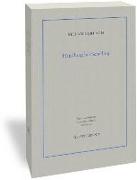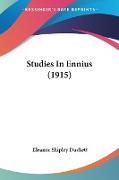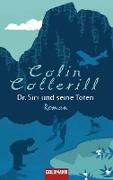- Start
- Handlung bei Schelling
Handlung bei Schelling
Angebote / Angebote:
Im Gang der Entwicklung seines Denkens betont Schelling zunehmend, dass die letzten Prinzipien der Philosophie praktische seien: das Ich formal als Tat in der Frühphilosophie, die Schöpfung als strukturell reich entfaltete Handlung in der Spätphilosophie. Unklar blieb dabei allerdings, worin die Praktizität dieser Prinzipien genau bestehe: welches Konzept von Handlung Schelling gebraucht und auf welche Art es in das Gesamte seines Systems eingeht. Dies im Hinblick auf die mittlere und späte Philosophie zu untersuchen, ist Ziel dieser Studie. Dabei wird ausgehend von der Potenzenlehre zunächst der Geist als praktisches Bewusstsein rekonstruiert und dann die Schöpfung als ontotheologische Ursprungshandlung mit der geschichtlichen Welt als Raum menschlichen Handelns systematisch entfaltet. Freiheit, Voraussicht, Zielgerichtetheit, Absichtlichkeit und Zukünftigkeit erweisen sich hier als die zentralen praktischen Attribute menschlichen wie göttlichen Tuns. Deren Verbindung wird im religiösen Bewusstsein des Menschen manifest und im Verhältnis von Zeit und Ewigkeit metaphysisch realisiert. In Schellings positiver Philosophie zeigt sich zuletzt, dass der geschichtliche Weltprozess überhaupt nur aus diesen praktischen Momenten verständlich werden kann.
Throughout his philosophical work, Schelling came to increasingly emphasize his conviction that the ultimate principles of philosophy are essentially practical: the ego formally conceived as act in early philosophy, creation as the unfolding of structurally rich action in late philosophy. It remained unclear, however, exactly what constituted the practicality of these principles, namely which concept of action Schelling used and how it is being integrated into the totality of his system. The task this study sets itself is to investigate into these issues in respect to his middle and late philosophy. With the doctrine of potencies serving as point of departure, spirit is first reconstructed as practical consciousness. Creation as an ontotheological original act with the historical world as the space of human action is then systematically developed. Freedom, foresight, purposefulness, intentionality and futurity prove to be the central practical attributes of both human and divine action. Their connection is manifested in the religious consciousness of man and instantiated metaphysically in the relationship of time and eternity. Schelling's positive philosophy shows that these practical aspects are the irreducable prerequisites to render the historical world process intelligible.
Fehlt beim Verlag, resp. Auslieferung/Lieferant




